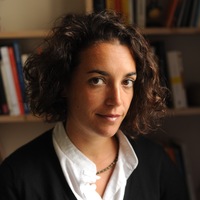EvidenceB was born from the observation that recent discoveries in these three areas of research would support teachers’ pedagogical choices , facilitating the implementation of a differentiation strategy .
Thanks to a strong investment in R&D and fundamental research that is now very advanced, Edtech has developed a disruptive and unprecedented educational technology . The main advantage of this technology is that it is based on Evidence-based Education , education based on evidence and scientific proof from measurable, verifiable and reproducible results.
The adaptive modules are based on an unprecedented alliance of research in cognitive sciences, artificial intelligence and UX learning interfaces to facilitate the learning of fundamental structuring notions from kindergarten to high school. Above all, it is about feeding the curiosity of each student with personalized digital paths in an attractive environment, optimized for learning.
In total, more than 50,000 educational activities have been designed by researchers and teachers specializing in many disciplines (languages, maths, sciences) for students from primary school to high school, including preparatory classes for grandes écoles and BTS.
In a co-creative approach, EvidenceB regularly partners with the teaching community who wish to experiment and test new resources in France and internationally.

Teams, studies and source publications
Here we share with you both the research teams, but also the preliminary studies and publications, before integration into EvidenceB products, which are the preliminary proofs of the impacts of the different components of EvidenceB products.
Mathematics
Languages
Artificial intelligence
Metacognitive functions


Dr Laurianne Vagharchakian
Institut Max Planck, Berlin
o Comprendre les notions de proportion et de fraction

Pr Emmanuel Sander
Université de Genève
o Nombre et Calcul,
o Calcul littéral,
o Grandeurs et mesures
o Résolution de problèmes arithmétiques

Dr Valeria Giardino
ENS Institut Jean Nicod
o Organisation et gestion de données, fonctions
o Espace et Géométrie

Dr Denis Alamargot
Professeur des universités, Université de Poitiers
o De l’oral à l'écrit
o Amélioration de la production écrite et l’activité rédactionnelle : textes argumentatifs, descriptifs, narratifs et explicatifs

Dr Alda Mari
Directrice de recherche, ENS Institut Jean Nicod et Marie Boscaro, doctorante, Institut Jean Nicod
o Améliorer la compréhension des textes
o Lexique
o Verbe

Dr Carla Soarès
Maitresse de conférence, Laboratoire de Linguistique Formelle, Université Paris Cité
o Syntaxe
o Orthographe
o Logique
ResearchGate - Site internet

Pr. Pascal Amsili
Professeur à l’université Sorbonne Nouvelle & Lattice (CNRS/PSL)
o Orthographe
o Syntaxe
o Logique

Lisa Brunetti
Maîtresse de conférences, Laboratoire de Linguistique Formelle, Université Paris Cité
o Logique
o Syntaxe
o Orthographe


Pr. Pascale Colé
Professeur à l’Université Aix-Marseille
o Améliorer la compréhension de lecture

Gerda Ana Melnik-Leroy
Institute of Data Science and Digital Technologies, Université Vilnius
o Apprentissage du Français (Vocabulaire et Grammaire)
o Apprentissage du Latin

Pierre-Yves Oudeyer
Artificial Intelligence, Machine Learning, Cognitive Science
o ZPDES / Apprentissage par renforcement

Our news
They trust us















Discover our solutions
Want to know more about the resources developed by EvidenceB?
Contact us to test a demo. We will answer all your questions.


